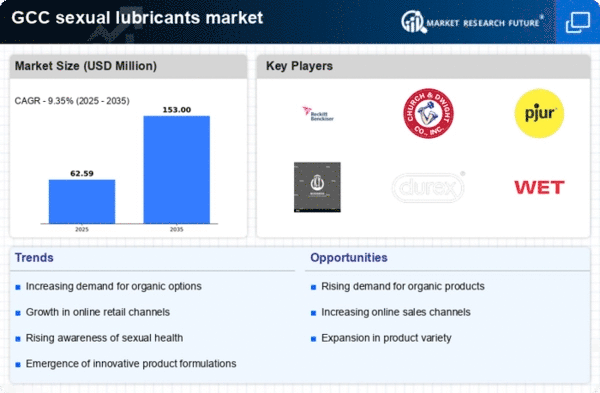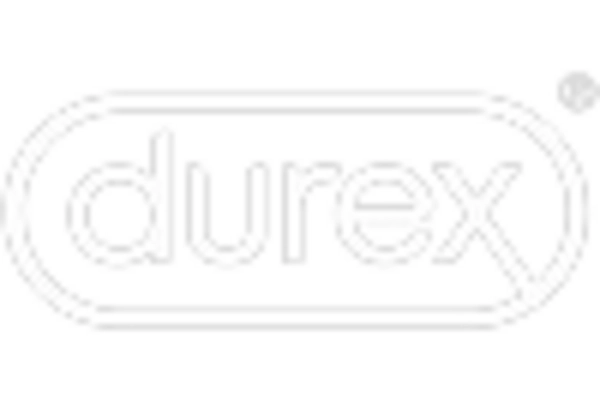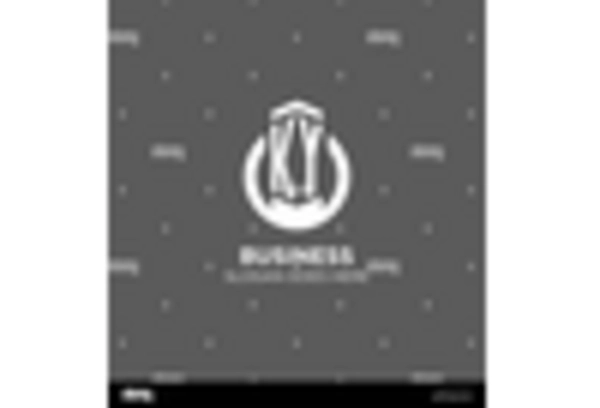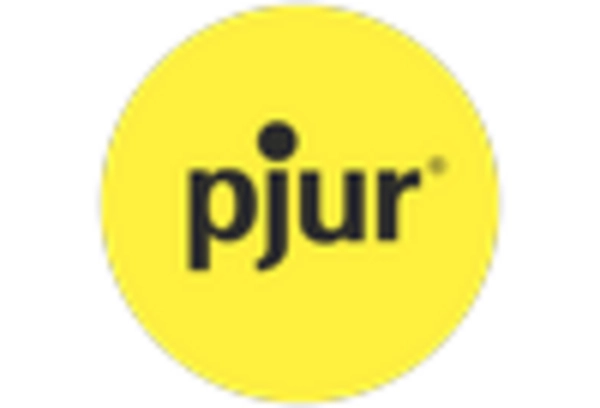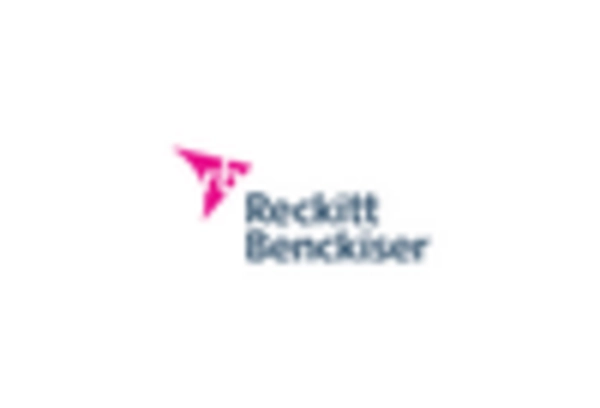Influence of E-commerce Platforms
The rise of e-commerce platforms in the GCC region significantly impacts the sexual lubricants market. Consumers increasingly prefer the convenience and privacy that online shopping offers, particularly for intimate products. This trend is supported by data indicating that online sales of sexual wellness products have surged by over 30% in recent years. E-commerce not only broadens the accessibility of various lubricant brands but also facilitates informed purchasing decisions through customer reviews and product information. As a result, the market is likely to benefit from this shift towards digital retail., enhancing overall market growth.
Rising Female Empowerment and Sexual Agency
The empowerment of women in the GCC region is emerging as a significant driver for the sexual lubricants market. As women increasingly assert their sexual agency, there is a growing demand for products that cater to their needs and preferences. This shift is reflected in the introduction of lubricants specifically designed for female pleasure, which are gaining popularity. Market data indicates that female-targeted lubricants account for nearly 40% of the total sales in the region, highlighting the importance of addressing female consumers in the sexual lubricants market. This trend suggests a promising future for products that prioritize women's sexual health and satisfaction.
Growing Acceptance of Sexual Wellness Products
The increasing acceptance of sexual wellness products within the GCC region appears to be a pivotal driver for the sexual lubricants market. As societal norms evolve, there is a noticeable shift towards open discussions regarding sexual health and intimacy. This cultural transformation is likely to encourage consumers to explore various products, including lubricants, which are often perceived as essential for enhancing sexual experiences. Market data suggests that the sexual lubricants market in the GCC is projected to grow at a CAGR of approximately 7% over the next five years, indicating a robust demand driven by changing attitudes towards sexual wellness.
Increased Focus on Personal Health and Hygiene
A heightened awareness of personal health and hygiene among consumers in the GCC is driving the sexual lubricants market. Individuals are becoming more conscious of the importance of using safe and effective products to enhance their sexual experiences. This trend is reflected in the growing demand for lubricants that are free from harmful chemicals and allergens. Market Research Future indicates that the sales of organic and natural lubricants have increased by approximately 25% in the past year, suggesting a shift towards healthier options. This focus on personal health is likely to continue influencing consumer preferences in the sexual lubricants market.
Impact of Social Media and Influencer Marketing
The role of social media and influencer marketing in shaping consumer perceptions is becoming increasingly relevant in the GCC's sexual lubricants market. Influencers and content creators are effectively normalizing discussions around sexual wellness, thereby encouraging consumers to explore various lubricant options. This trend is supported by data showing that brands leveraging social media campaigns have experienced a sales increase of up to 20%. As consumers turn to social platforms for recommendations and information, the market is likely to see continued growth driven by effective digital marketing strategies..


